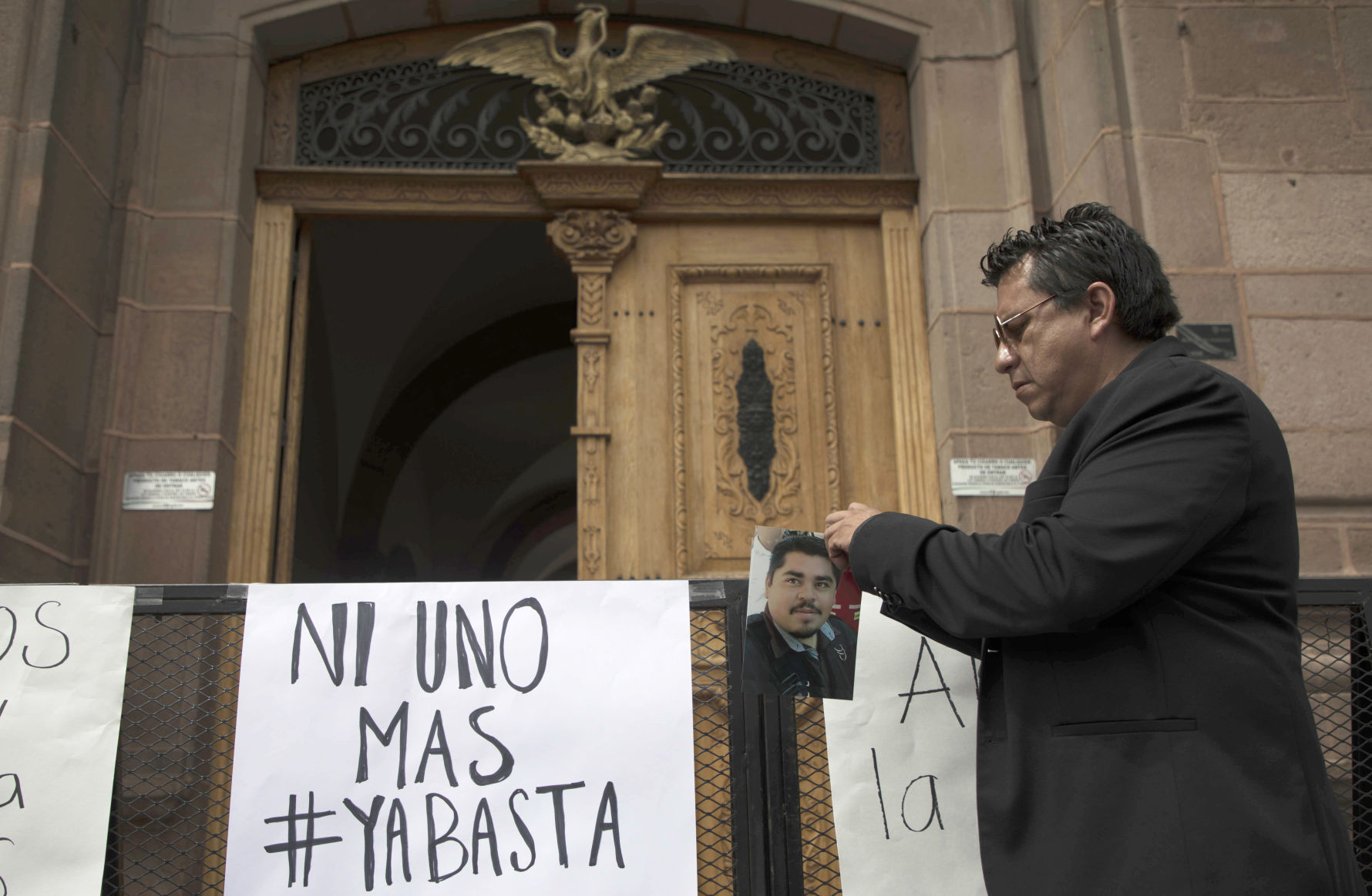MEXICO CITY (AP) — The body of a journalist was found Friday in the central Mexican state of San Luis Potosi one day after armed men wearing uniforms abducted him from his home, authorities said. Edgar Daniel Esqueda Castro, a
MEXICO CITY (AP) — The body of a journalist was found Friday in the central Mexican state of San Luis Potosi one day after armed men wearing uniforms abducted him from his home, authorities said.
Edgar Daniel Esqueda Castro, a freelance photographer, had reported threats and intimidation by detectives from the state prosecutor’s office in July. It was that same body the state human rights commission had asked to protect him.
State prosecutor’s office spokesman Ivan Ojeda said Esqueda’s body was found near a San Luis Potosi airport.
On Thursday, the prosecutor’s office denied that its detectives had taken Esqueda from his home, though it said the armed men had claimed to be from its force.
“We have various lines of investigation in the case,” Ojeda said Friday. “We’re not ruling out anything.”
The New York-based Committee to Protect Journalists said that Esqueda covered crime and society news, contributing to local news sites Metropoli San Luis and Vox Populi.
The Paris-based Reporters Without Borders, a journalist advocacy group, said in a statement that Esqueda’s wife said that early Thursday morning the armed men identifying themselves as state prosecutor’s detectives “grabbed Edgar by the neck and threw him to the ground while pointing a gun at me.” He had been asleep when they broke into the home.
According to the federal government’s program that protects journalists and human rights workers, San Luis Potosi state’s human rights commission had notified it in late July that Esqueda had been threatened by detectives while photographing a crime scene.
“He was approached by five detectives who threatened to take his camera and beat him up if he continued taking photographs,” the state body wrote. “They made him erase the material and ran him off.”
One week later, Esqueda was again confronted by detectives while covering another event. They asked for and took pictures of his identification and suggested they would be watching him and his home. They said that maybe he was passing information to criminals through his work.
The federal protection program said in a statement that it had called Esqueda, who confirmed those accounts. He told the program that there had not been any more threats or confrontations, but that he had filed a criminal complaint.
The federal program said the state human rights office reported it had turned the case over to police from the state prosecutor’s office and that its commander had agreed on July 24 to take care of it. The state human rights commission did not return a call for comment Friday.
Following his abduction, the federal program offered protection to Esqueda’s wife. Esqueda had not enrolled in the federal protection program.
The federal program said that it lamented Esqueda’s death and called on authorities to immediately investigate and find those responsible.
At least nine journalists have now been killed this year in Mexico.
The most prominent was Javier Valdez, co-founder of the Riodoce magazine and author of many books about the intersection of drug trafficking and society, who was killed in May blocks from his office in Culiacan, Sinaloa.
After his murder President Enrique Pena Nieto promised more resources to protect journalists and called together the country’s governors to emphasize that more needed to be done.
On Friday in San Luis Potosi, about 100 people, mostly journalists, demonstrated in protest.
Leopoldo Pacheco, who has worked 25 years as a journalist, was among them and said the killing shows that the work toward prevention had failed, with no one punished for any crimes against journalists.
“The profession today is really mad, but above all feels powerless and a deep sadness for what is happening to us,” he said.
——
Associated Press journalist Christian Palma in San Luis Potosi contributed to this report.


